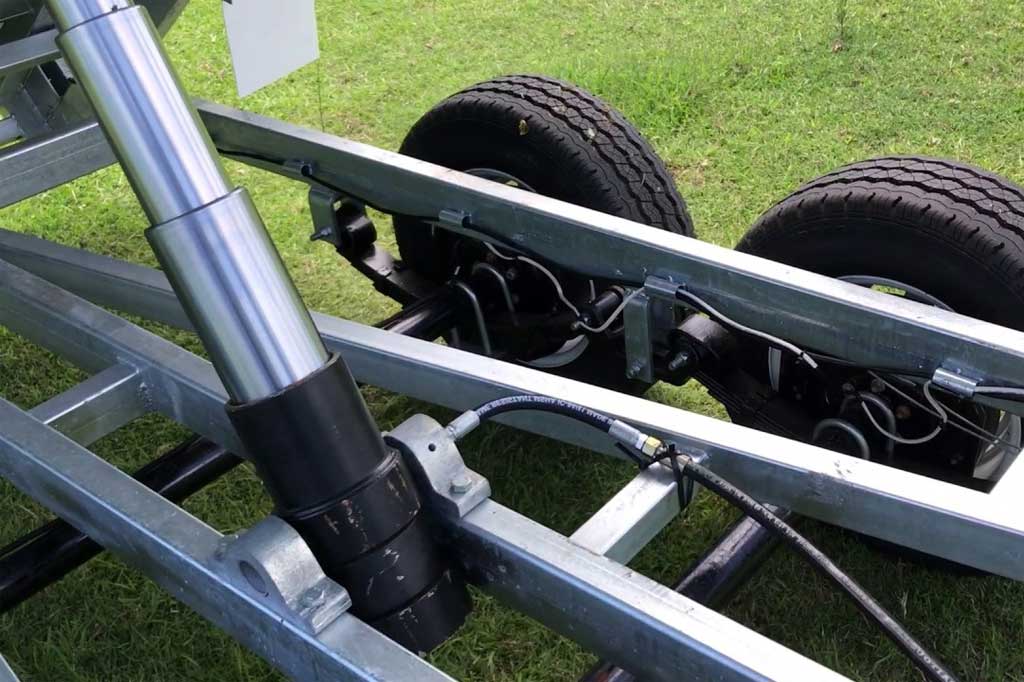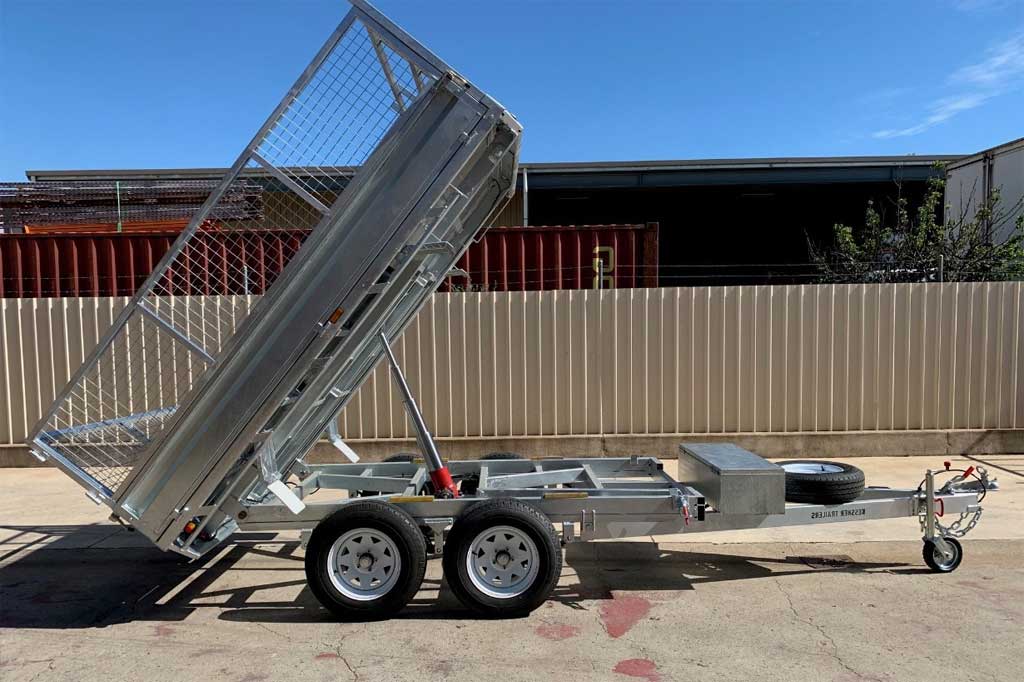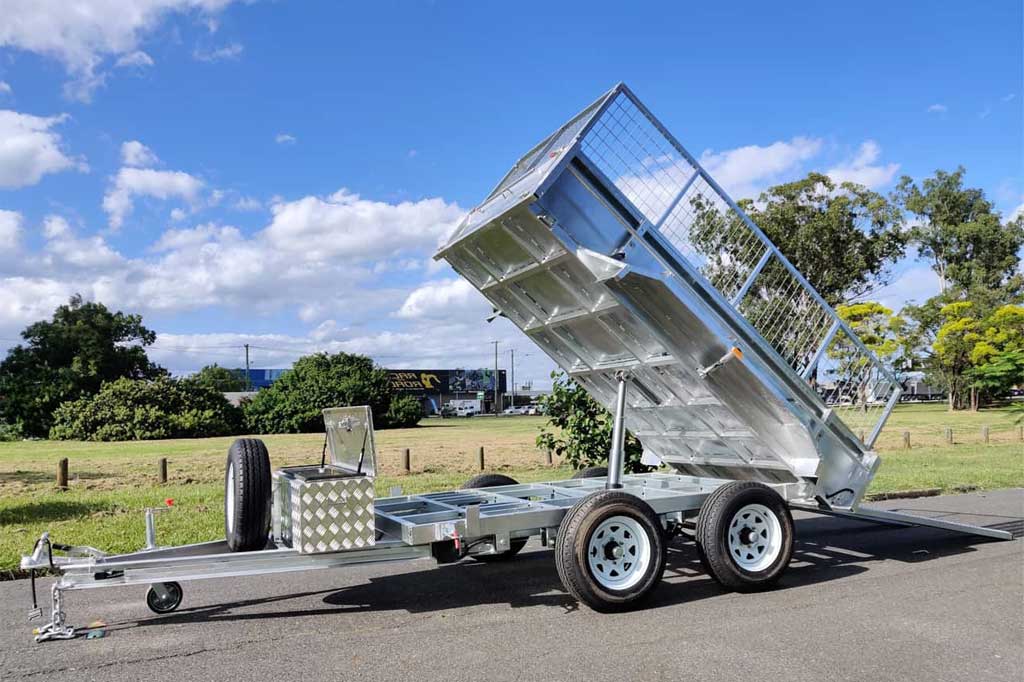When venturing into the market for a hydraulic tipper trailer, whether for construction, landscaping, mining, or waste management, knowing what to look for can make all the difference. A well-informed purchase decision not only ensures you get value for your money but also guarantees that the trailer meets your specific needs in terms of efficiency, durability, and safety.
Here’s a comprehensive guide on key features to consider when buying a quality hydraulic tipper trailer.
Build Quality
The quality of a hydraulic tipper trailer is paramount. Look for trailers made from high-grade materials such as high-tensile steel or aluminum. Inspect the trailer’s construction closely. Welding should be neat and consistent, with no gaps or cracks. The chassis and frame should be robust enough to handle the maximum load capacity without bending or warping. Check for any signs of poor workmanship, as these can be indicators of potential future failures.

Hydraulic System Reliability
A reliable hydraulic system ensures smooth and efficient operation. Examine the hydraulic cylinders, pump, and fluid reservoir. Ask the trailer manufacturer about the hydraulic system’s maintenance requirements and whether any specific procedures must be followed to ensure longevity.
Load Capacity and Size
The load capacity and size of the trailer are necessary. It should match your specific hauling needs without exceeding the towing vehicle’s capabilities. Overloading a trailer can lead to significant safety issues and may also be illegal.
Consider both the Gross Vehicle Weight Rating (GVWR), which is the total weight of the trailer plus its maximum load, and the trailer’s physical dimensions. Ensure the trailer’s bed is large enough to accommodate the types of materials or equipment you plan to transport. Side walls and the ability to add extensions can also offer flexibility for different types of loads.
Safety Features
Look for trailers equipped with features such as heavy-duty brakes, stabilizing jacks, and reflective markings. Hydraulic tipper trailers should have a fail-safe mechanism to prevent accidental tipping or collapse during loading and unloading.
Lighting is another critical safety aspect, especially for trailers used on public roads. Ensure the trailer has proper working taillights, brake lights, and turn signals. Some trailers also come with additional safety features like side guards or cages, which can help secure the load during transit.

Tipping Mechanism and Ease of Unloading
The efficiency of the tipping mechanism is a key factor, especially if the trailer will be used frequently throughout the day. A smooth, reliable tipping action can save time and reduce manual labor. Check the tipping angle; a higher angle means easier and more complete unloading of materials like sand, gravel, or soil.
Electrically operated hydraulic systems offer convenience with the push of a button, while manually operated systems might require less maintenance. Consider which option best suits your work environment and operational needs.
Additional Features and Accessories
Depending on your specific needs, additional features and accessories can improve the versatility of your hydraulic tipper trailer. Options such as removable sides, tarpaulin covers, tool boxes, and spare tire mounts can be invaluable for certain applications. Evaluate which additional features will benefit your operations and check their availability with the trailer model you are considering.
Real-Life User Reviews and Expert Opinions
Before making a purchase, seek out real-life user reviews and expert opinions. These can provide insights into the long-term durability and performance of different trailer models. Online forums, product review sites, and discussions with industry professionals can offer a wealth of information.
Conclusion
Choosing hydraulic tipper trailers is a significant investment that can enhance the efficiency and productivity of your operations. By carefully considering the build quality, hydraulic system reliability, load capacity, safety features, ease of use, brand reputation, price, and real-life reviews, you can select a trailer that meets your specific needs and provides reliable service for years to come.
